Best of British: Christmas film comedies
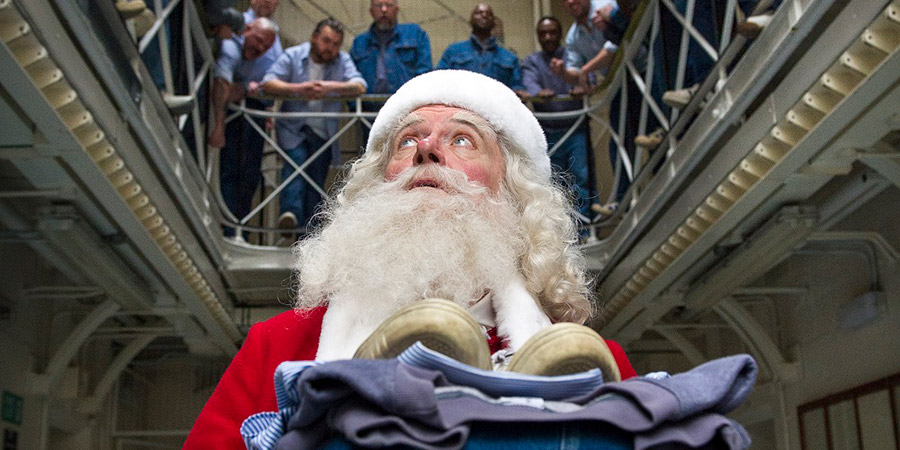
If someone says, "Think of a Christmas comedy film", you'd be forgiven for turning straight to the US. Hollywood is saturated with feel-good festive fare, from How The Grinch Stole Christmas (2000) to Elf (2003) to National Lampoon's Christmas Vacation (1989), to name but a few.
Tinseltown seems to have a monopoly on the merry market, and it's not just in comedy. Classics like Die Hard (controversial!), It's A Wonderful Life and Miracle On 34th Street are staples of the Christmas canon, too. Indeed, a recent Buzzfeed article spoofed the differences between the high-class, sleek, elegant version of Noel celebrated in the States and the more down-to-earth variety this side of the Atlantic. Yet if the prospect of three Tim Allen-fronted The Santa Clause movies is just too much for you (the last of which is subtitled 'The Escape Clause'...), or if you simply can't take any more of Home Alone or its franchise this Christmas, we've compiled a list of alternative, certified-best-of-British yuletide films guaranteed to have you jingling all the way.
Here we'll focus solely on feature films, but if you're interested in TV Christmas specials, see our forum thread on the subject.
Get Santa (2014)
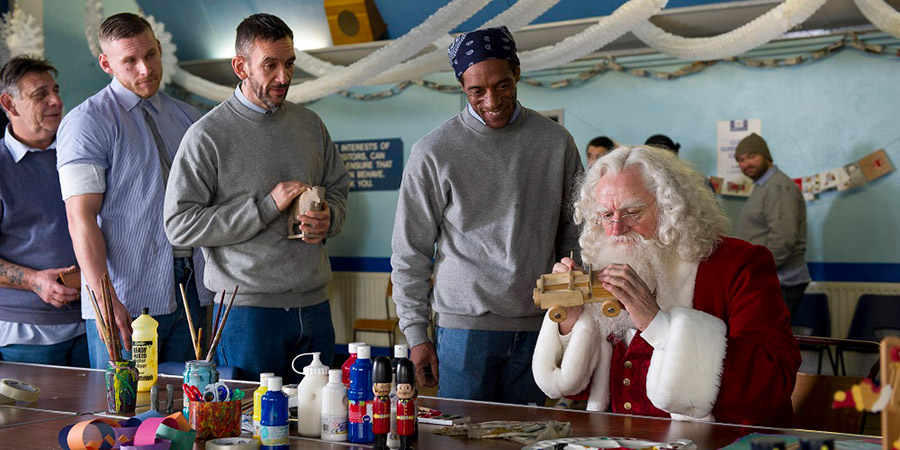
Directed by Christopher Smith, Get Santa is a festive adventure comedy about the fractious but gradually restorative relationship between a father and son. Jim Broadbent's big-hearted turn as Father Christmas will make you wonder why he'd never played the role before, and the film runs along the familiar lines of having a man who believes he truly is Santa try to come to terms with a sceptical and unforgiving modern world (see Miracle On 34th Street, Elf, etc.).
A few days before Christmas, Steve Anderson (Rafe Spall), a former getaway driver, is released from prison. His son Tom (Kit Connor) calls him to say that a man, claiming to be Father Christmas, is in his garden shed. Understandably, Steve runs home and confronts him, but he soon discovers the man was telling the truth. Santa has crash-landed when testing out his new sleigh, and it is up to Steve and Tom to save Christmas, rescue Santa from Lambeth Prison, and reconnect with one another in the process. The film features Brian Cox explaining the Northern Lights, a cameo by Warwick Davis, annoyed when Santa mistakes him for an elf, and some truly heart-rending moments of kindness between father and son.
About A Boy (2002)

A razor-sharp depiction of befuddled modern masculinity that becomes increasingly relevant in the modern era, this 2002 film directed by Chris Weitz and Paul Weitz and adapted from the 1998 novel by Nick Hornby, showcases the very best of main actor Hugh Grant's comedy talent.
Meet emotionally-unattached bachelor Will, who, after bumping into 12-year-old Marcus and his single, suicidal mother, gradually learns the value of caring for people other than himself. Will is a self-proclaimed 'island' of a man, living off the royalties of his father, who wrote a single one-hit-wonder back in the day called "Santa's Super Sleigh" and spent the rest of his life miserably trying, and failing, to write another one. Humour comes from Marcus being genuinely happy at some 'crap' Christmas presents (Will's word), the strains and stresses of family Christmas dinners, and a brilliant blink-and-you'll-miss-it shot of Will walking across a London bridge towards the other side of London for a Christmas party at this wacky family's home, when almost everyone else is brushing past him, heading rapidly for the leafy suburbs. (Of course, instead of 'duck', as Will might have wanted, they have 'nut loaf with parsnip gravy'.)
About A Boy is a dark and fairly harrowing film in parts, but contains the feel-good quote to end all feel-good quotes: "Once you open your door to one person anyone can come in." It's not as much a staple of the holiday season as other beloved festive treats, but I defy anyone to watch the final scenes and not call it a "Christmas comedy".
Arthur Christmas (2011)
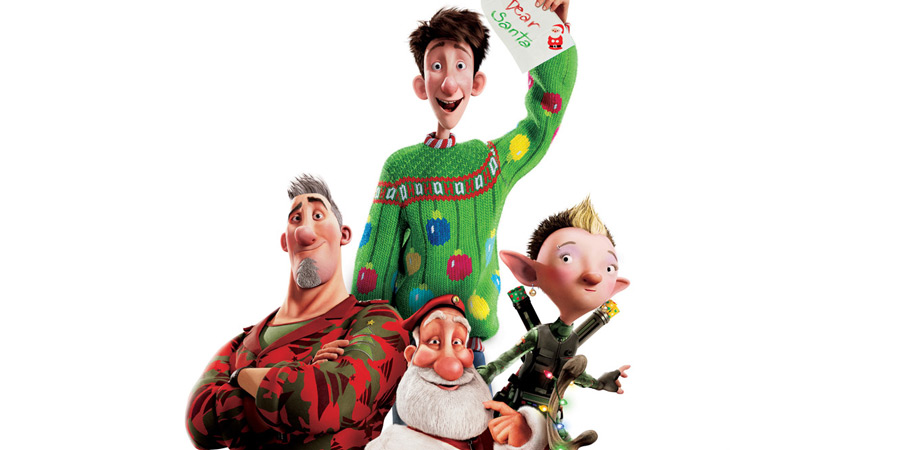
You can't get much more British than Aardman and in 2011 they brought us a Christmas caper filled to the brim with joyous adventure, warm-hearted personality, and reliable charm. Directed by Sarah Smith it boasts a star-studded voice cast including James McAvoy, Hugh Laurie, Ashley Jensen, Imelda Staunton, Bill Nighy, and Jim Broadbent.
The film follows young Arthur Claus (McAvoy), the gormless but well-meaning son of Father Christmas, who discovers to his evident dismay that the high-tech logistical operation in place at the North Pole (after all, it must cover the entire globe in one night) has a glitch, and has failed to deliver one girl's present. No-one seems to care too much, having somewhat lost their tender loving care amidst this transactional approach to modern gift-giving, and Arthur's mission is to save the true meaning of Christmas, accompanied by his free-spirited and reckless grandfather and a rebellious young Christmas elf who is obsessed with wrapping gifts for children. All your festive tropes are name-checked: reindeer, magic, tinsel, workshops, presents... It's about as unchallenging as cinema gets on a moral level, but it harnesses those qualities that all great Christmas films possess in spades: likeable protagonist, focus on love and care, and a reminder that genuine affection for your nearest and dearest is crucial at this time of year.
The Boat That Rocked (2009)
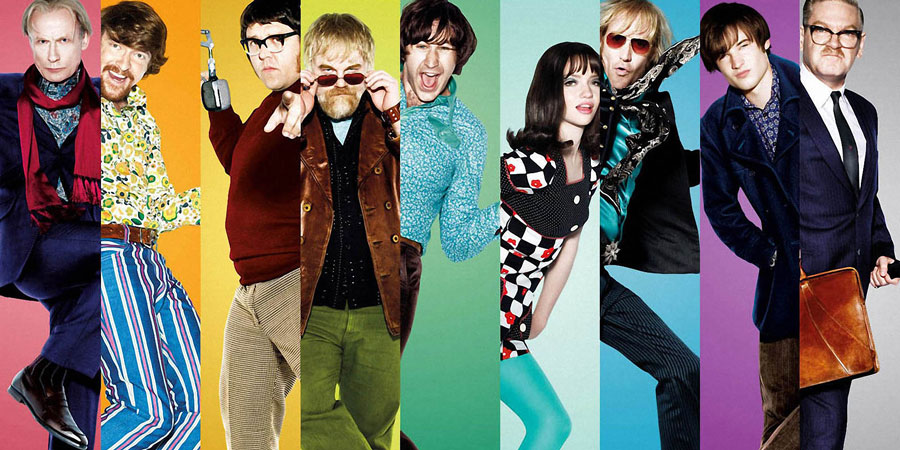
OK, so it's not strictly speaking a Christmas film in the traditional sense, but The Boat That Rocked: 1) is a Richard Curtis movie; 2) celebrates true freedom and the pursuit of happiness; and 3) involves a Christmas dinner. It counts.
Set in 1966, it tells the story of the fictional pirate radio station "Radio Rock" - loosely based on Radio Caroline - and its crew of eclectic disc jockeys who broadcast rock and pop music to the United Kingdom from a ship anchored in the North Sea, while the Government attempts to shut them down. When crew member Carl's (Tom Sturridge) mother, played by none other than Emma Thompson, visits Pirate Radio's ship for Christmas, the group share a delightful meal celebrating their much-earned time-off. "A shag well shagged", praises Dave (Nick Frost), describing the night she made Carl! The film also features the late Philip Seymour Hoffman dressed up as Father Christmas, and perhaps the greatest use of the F-word in the history of cinema. Need we say more?
Surviving Christmas With The Relatives (2018)
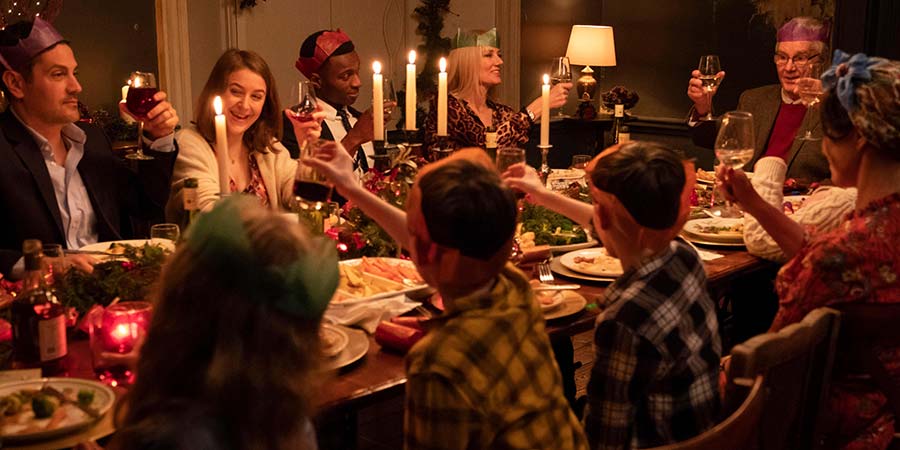
The story of a dysfunctional family struggling to come to terms with a chaotic, eggnog-fuelled Christmas. Cue conflict, tension, inter-generational squabbling, drugs, and lots and lots of sex. Yes, it was almost universally panned by critics, but the farcical nature of this romp through the festive season has some choice and astute observations on the pressure to be merry and light all day long, even when surrounded by your in-laws.
Turkey and trimmings? Check. Bumbling, charming vicar? Check. Frisky elderly aunt ("Are you my stocking present?")? Check. Single sister? Check. Another successful actor sister? Check. It's perhaps not the classic British Christmas comedy we might have been waiting for, but it's great fun, with several comings-and-goings, mirthful misgivings and people coming out of doors at inopportune moments... What's more, it features Sally Phillips and Game Of Thrones star Gemma Whelan letting loose and giving it all during the holiday season, and it's written and directed by James Dearden, whose screenplay for Fatal Attraction was nominated for an Academy Award.
The Bridget Jones saga (2001-2016)
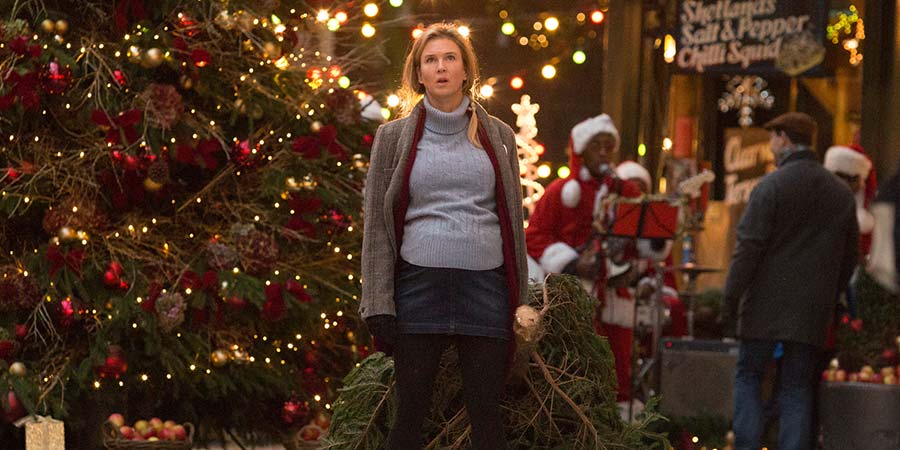
Bridget Jones began life as a literary character created by Helen Fielding, the subject of a column in The Independent in 1995 that, crucially, did not carry any byline. Thus the illusion was maintained that the diary entry be 'real', chronicling the life of Jones as a thirty-something single woman in London trying to make sense of life, love, and relationships.
A first novel was published in 1996, the second in 1999, and after the huge, runaway success of the first film, Bridget Jones's Diary, in 2001, two sequels followed: Bridget Jones: The Edge Of Reason (2004), and Bridget Jones's Baby (2016). To this day, Bridget is a contested figure, with several think-pieces across the Internet tackling this fundamental question: is Jones a sexist portrayal of a desperate, attention-seeking woman, or an aspirational feminist icon? Yes, she's a contradictory, binge-drinking, chain-smoking mess, perennially late and embroiled in a difficult relationship with her boss. But she also resides in a swanky Borough flat, has a great job, and is constantly surrounded by a wealth of warm, funny friends. She's both the modern woman - socially progressive, urban, tolerant, insecure, promiscuous - and the traditional archetype, forever searching for Mr Right. A woman of contrasts: human.
Either way, she's terrific fun to watch. Christmas isn't front and centre, but if the first film's final scene, with the so-bad-it's-good run past the Christmas-tree shop-windows and a SNOG UNDER THE SNOW IN A DRESSING GOWN, aren't Christmassy enough for you, the scene in which Colin Firth goes from hero to zero due to an ill-advised Reindeer jumper should be evidence enough. It's bookended by the holidays, it's about loneliness, it's about drinking with family and friends. It's worthy of a Hallmark Christmas card! See this GQ article for more evidence.
Brazil (1985)

OK, so this might be stretching it. But if killing Hans Gruber is Christmassy (see Die Hard), then Terry Gilliam's sci-fi, dystopian, absurdist film from 1985 ought to qualify, too! Brazil centres on Sam Lowry, played by Jonathan Pryce, a man trying to find a woman who appears in his dreams while he is working at a dead-end job and living in a small apartment, set in a Kafkaesque, 1984-inspired world increasingly over-reliant on poorly maintained machines.
The film understands that despite the oppressive burden during the holiday season to be light and merry at all times, not everyone feels genuinely content with their lot in life. Ironically, being surrounded by perennially bubbly people can be a recipe for disaster. During one scene, as a mother reads Charles Dickens's classic tale A Christmas Carol, itself reworked dozens of times on screen, an instrumental of "Deck the Halls" plays ominously in the background: "Scrooge was better than his word. He did it all, and infinitely more..."
Disconcerting, puzzling, and choc-a-block full of Christmas iconography (including Santa himself) manipulated for nefarious ends, Brazil is a useful tonic to the picture-postcard, almost tyrannically optimistic visions of Christmas that we imbibe so frequently in Hollywood fare. The opening scene, in which a child wonders how Father Christmas can access his house given that there's no chimney, only for the special forces to cut open a hole in the ceiling, is as absurd as it is amusing.
The cultural commentator Christopher Hitchens once observed that modern attitudes to Christmas are the closest one can get to living in a post-totalitarian state, simply by virtue of the fact that it brooks no dissent. If you don't like it, if you're not a great fan, you're instantly ostracised as a pariah, because apparently everyone ought to love Christmas. If you don't, you're weird. And it's not like Valentine's Day or Easter, which last for a maximum of a couple of days - maybe a week, maximum - either side of the day itself. No: Christmas lasts an entire month or more, and there is no escape wherever you turn. It's in every shop-window, its anthems (hymns?) are on every radio station the length and breadth of the country, and even office-spaces are saturated with Christmas trees, baubles, and tinsel. Scary, when you think about it...
Last Christmas (2019)
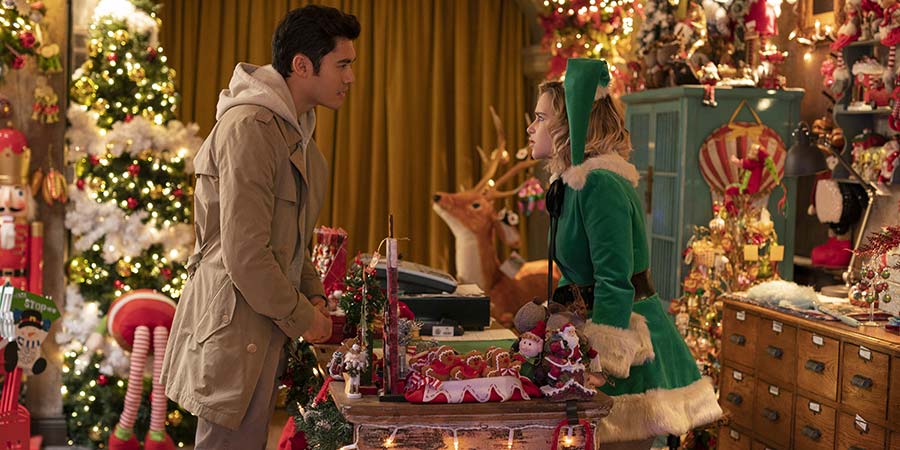
Emma Thompson co-wrote this 2019 feature with her husband Greg Wise and screenwriter Bryony Kimmings, casting Game Of Thrones star Emilia Clarke in the main role as a cynical Christmas-store worker who forms a relationship with mysterious man (Henry Golding), and slowly falls for him. Although it received mixed reviews from critics, audiences have largely bought into its unashamedly jubilant tone and surprisingly insightful observations on modern, Brexit-obsessed Britain. Following in the footsteps of musical films of 2019 such as Bohemian Rhapsody, Rocketman, and Yesterday, which have used a famous band's songs as the soundtrack and connecting thread through their narrative, Last Christmas features the music of George Michael, including the bittersweet festive classic of the title and even some brand-new tunes. Fans of the 2018 cross-cultural smash-hit Crazy Rich Asians will know Henry Golding very well indeed, and here he fulfils all the prerequisites of a great rom-com lead: likeable, strong, honest, kind. It's girl meets boy, it' set in snowy London, it features a year-round Christmas shop whose employees dress as elves all day long, it's about cynicism transforming into hope. It's almost sickly-sweet in its sentimentality, but if that's what you're after, you won't go too wrong with Last Christmas.
Filth (2013)
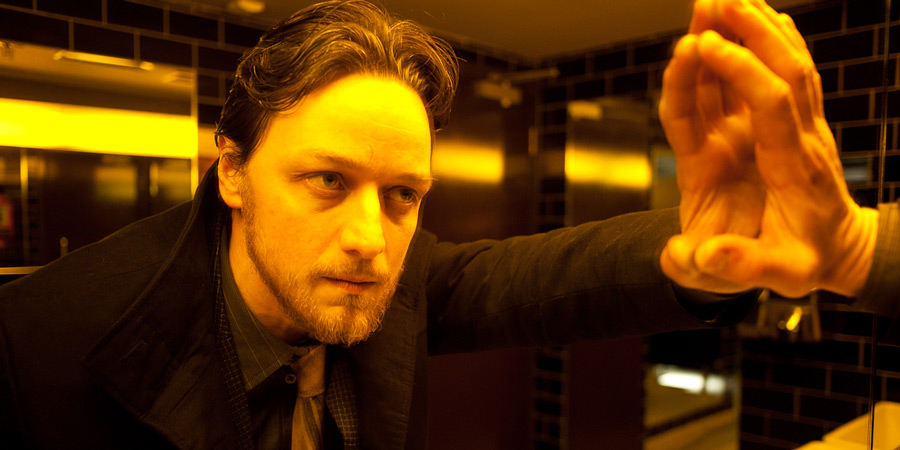
If you like your Christmas dark, disturbing, and depressing, look no further than Filth. Based on an Irving Welsh novel, Jon S. Baird's 2013 comedy-of-sorts is jet-black in tone, following a fat, drug-abusing, sexually-deviant bi-polar policeman, 'Robbo' (James McAvoy), who is tasked with the job of solving the murder of a Japanese student.
It's set at Christmas, so it counts, and Robbo is desperate to win back his wife and daughter, but there's hardly any carnival spirit or back-slapping festive-cracker jokes. Although the opening credits play over "Winter Wonderland", it's the polar opposite of something like Netflix's The Princess Switch (2018) or A Christmas Prince (2017)! There's oodles of sex, masturbation, threesomes, homophobia, racism, drug-abuse, and split personalities, with a fair dose of Christmas negativity thrown in for good measure. In one scene, a truly creepy Jim Broadbent even sings a perturbing version of "Good King Wenceslas", guaranteed to make the bones chill.
Its supporting class includes Jamie Bell, Eddie Marsan, Imogen Poots, John Sessions, and Shirley Henderson - need I say more? In the same way that the Billy Bob Thornton-fronted anti-Christmas movies Bad Santa and its sequel were the perfect affront to your tried-and-tested, so-overdone-it's-practically-carcinogenic-by-now Christmas movie, Filth twists the knife and allows James McAvoy to indulge in the worst excesses of holiday hopelessness. The subgenre of gritty, repulsive underworlds full of sex and drugs that sparked into life with Trainspotting, another Irvine Welch adaptation, can quickly become tiresome and nihilistic, but there's enough anarchic spirit to make Filth a Christmas caper worth a watch.
Love Actually (2003)
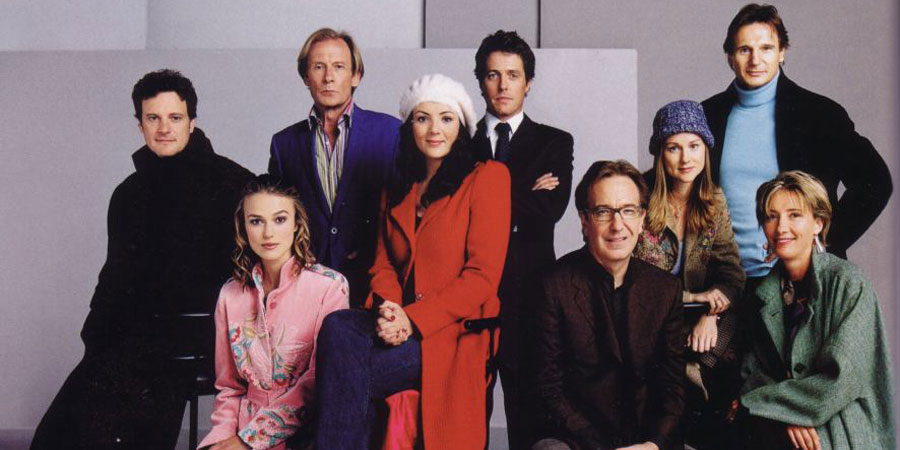
The most Marmite of British Christmas films. A schlocky, schmaltzy, kitschy love-in, but also a well-made, pitch-perfect ensemble rom-com with some genuinely intriguing storylines (e.g. two porn stand-ins falling for one another whilst on-set; and Laura Linney's impossible, heart-rending decision between the handsome hunk at work or her severely disabled brother). Either you actually hate Love Actually or you actually love Love Actually - there's little in-between. It taught us back in the Noughties that:
1. Joni Mitchell is the only acceptable soundtrack to being cheated on. (Incidentally, Emma Thompson's acting in that one scene is so breathtaking that had the film just been that and that alone, it would have justified the cinema ticket fee. It is Love, Actually.)
2. You can fall in love with anyone even if you don't speak their language. (Apparently...)
3. That three young, attractive American women will instantly fall in love with anyone in possession of the mildest British accent, be in awe at their pronunciation of 'bottle', and invite them back to their apartment, where they all sleep in one bed and 'would be naked'.
4. That making a wedding video about your best-mate's new wife in which you literally focus solely on their face and nothing else isn't 'creepy'; it's the height of romance.
So yes, it's deeply flawed, and there are far too many fat-jokes at the expense of Natalie (Martine McCutcheon) and Aurelia's friend Sophia (Carla Vasconcelos). I can't help but feel that so much of the hatred this film receives could have been avoided had Richard Curtis et al. not decided to cut perhaps the most socially progressive, non-heteronormative scene, about the lesbian headmaster, played by Anne Reid, and her terminally-ill partner Geraldine, played by Tony and Olivier Award-winning actor Frances De La Tour. (Curtis has said he is "really sorry" he cut these lesbian scenes.) So, anyone after rich nourishment may well leave feeling decidedly peckish, but Love, Actually will continue to be a festive favourite for decades to come because it hits all the right notes, and embraces the concept of feel-good festive fun like a banker receiving a bonus: shamelessly.
Millions (2004)
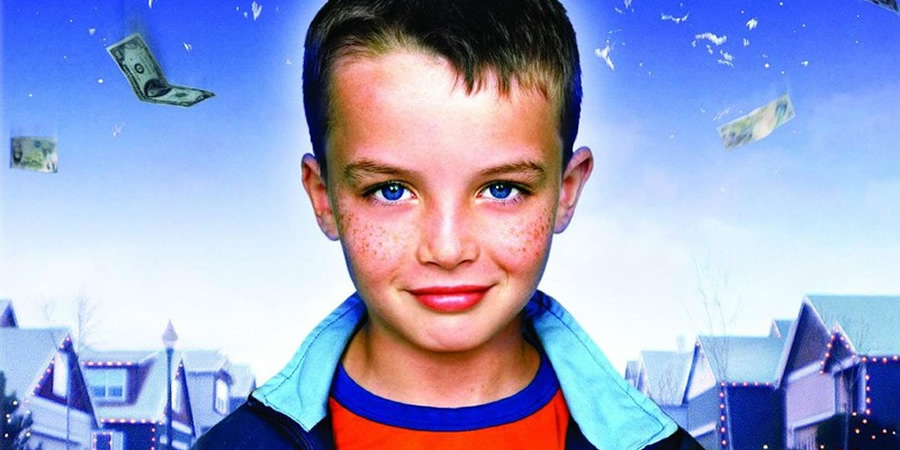
As the movie opens, Christmas is fast approaching and the UK is on the cusp of switching to the Euro (so it has a certain topicality even now!), while seven-year-old Damian (Alexander Nathan Etel) and his older brother Anthony (Lewis Owen McGibbon) are having a tough time negotiating more personal upheavals: a new house, a new school, and trying to live their best life without their mum.
Christmas films and songs are often over-reliant on quaint, schlocky nostalgia, but this film is rooted in the messy twists and turns of real life, rather than the holiday-themed hodge-podge of Christmas stereotypes so common in Hollywood. No, there's no Bing Crosby and little crunch of snow underfoot, but there's a truly awful Nativity play (that most British of festive traditions), and a heavy dose of the genuinely magical. Critic Roger Ebert once described main child actor Etel as "like the young Macaulay Culkin, except that he has no idea he is cute".
So there you have it: the British Home Alone - without the uncomfortably brutal slapstick comedy. (How do the two crooks in that film continually survive, and walk headfirst into, such vicious attacks...!?) Although avarice and materialism are roundly criticised, Millions never becomes preachy or self-satisfied, capturing the spirit of Christmas established in selfless, fellow-feeling, companionship, and good deeds carried out in aid of the most vulnerable in society. For some reason this hopeful and beautifully-crafted cautionary tale about the consequences of greed and corruption is extremely hard to find in this age of ubiquitous streaming services and on-demand platforms, but if you can locate a DVD or borrow it from a friend, it's well worth a watch!
The Nativity! saga (2009-2018)
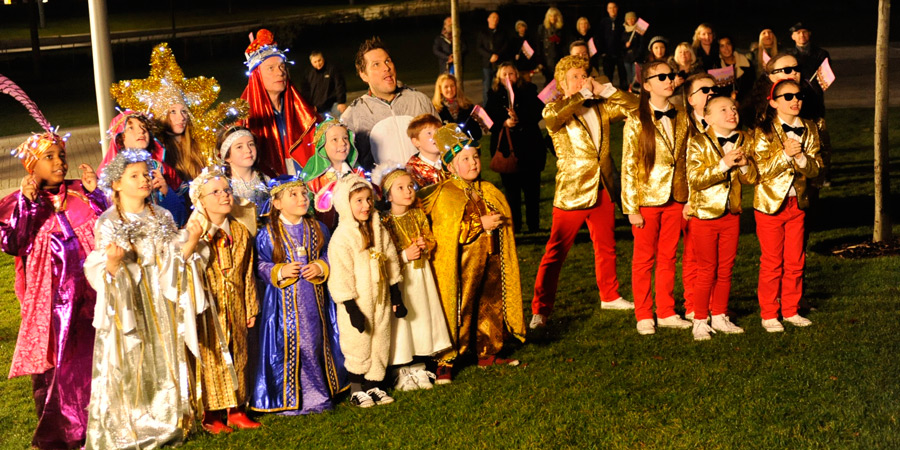
The Nativity! saga jumps headfirst into Christmas nostalgia, leaving no stone unturned in its relentless pursuit of all possible festive tropes. In the first film, released in 2009, Paul Maddens (Martin Freeman) is a teacher whose ambitions of becoming a successful actor or director have fallen by the wayside. However, each year his school, St Bernadette's Primary School in Coventry, has a competition with the local private school (Oakmoor) to see who can produce the best nativity play, and it's his turn to run it.
When Paul lies to Gordon Shakespeare, the rival teacher and nativity-director, that Hollywood (!) will be turning his nativity into a big-budget feature film, the rumour spreads like wildfire. Paul has no choice but to go along with it, desperately trying to convince the big dogs in Tinseltown to fund his project. It's a mad, joyous, rollicking, character-driven adventure that - a quality surprisingly seldom found in Christmas movies - is actually geared towards the whole family. It's a genre spoof, hyperaware of yuletide clichés, but seamlessly transitions into a more emotional gear, teaching real and moving lessons about teamwork, education, and friendship.
The second film, Danger In The Manger (2012), sees Martin Freeman replaced by David Tennant, and sees the schoolchildren writing a Christmas song that they hope will reach number 1 in the charts. The third, Dude, Where's My Donkey (2014), centres on a flashmob, and the fourth, Nativity Rocks!, introduces us to Doru, a child refugee from Syria, who, having been separated from his father upon arrival in the UK, joins St. Bernadette's School and, amid another Christmas musical production, is aided by his teachers in his search to be reunited with his family.
A Wonderful Christmas Time (2014)
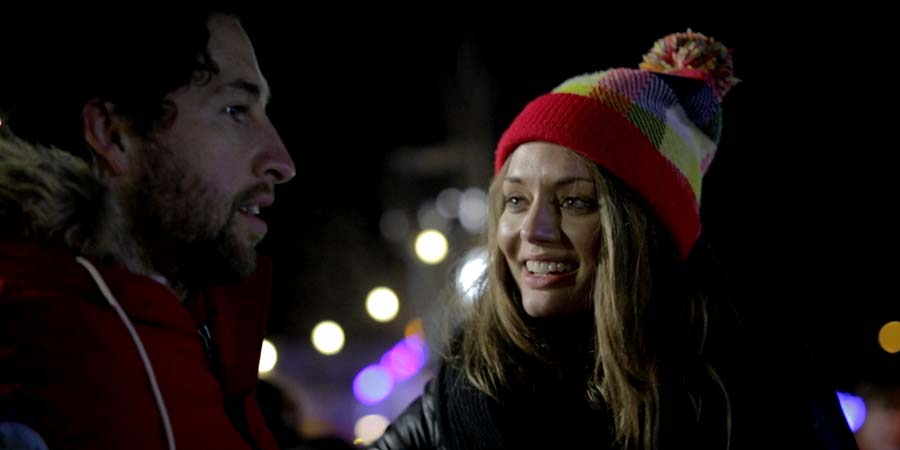
Two weeks before Christmas, 22-year-old Noel (aptly named) is left alone by his parents and dumped by his long-term girlfriend for another guy - a taller, more rugged model. By chance he meets Cherie, a disenchanted actress who allows Noel to open up about his feelings and passions. Their shared love of music, 80s movies, and all things Christmas raises the possibility of a Wonderful Christmas Time... but could there be something more for the pair?
It's heart-warming yet grounded and unpretentious, featuring the classic festive staples of scratchy Christmas-cracker hats, inordinate amounts of alcohol, awkward games of charades, inelegant ice-skating, and terrible Christmas jumpers. A Christmas comedy about finding love during the festive season - what more could you want?
How odd that James McAvoy plays both the likeable, big-hearted title character in Arthur Christmas, and also the repellent, amoral 'Robbo' in Filth! And that Jim Broadbent] plays the clumsy, wholesome Santa in Get Santa but also the spine-chilling Dr. Rossi in that same, unnerving 2013 film. Just goes to show: Christmas is a time of contradictions!
Help us publish more great content by becoming a BCG Supporter. You'll be backing our mission to champion, celebrate and promote British comedy in all its forms: past, present and future.
We understand times are tough, but if you believe in the power of laughter we'd be honoured to have you join us. Advertising doesn't cover our costs, so every single donation matters and is put to good use. Thank you.
Love comedy? Find out more
